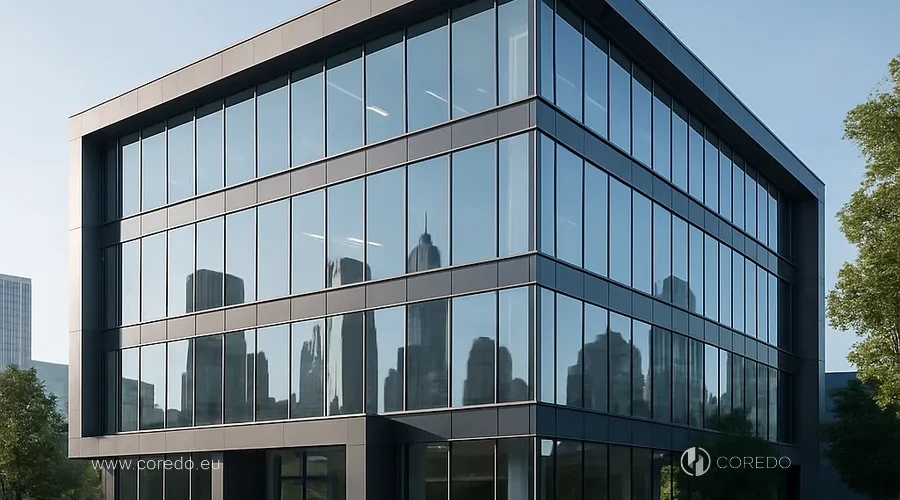In 2024 more than 180 global corporations announced the relocation of their regional headquarters to Riyadh, and the total volume of foreign direct investment in KSA grew by 20% year-on-year: this is not just a statistic, but a signal of fundamental changes on the global business map.
Why do international companies overwhelmingly choose a local headquarters in Saudi Arabia? What challenges and opportunities does opening a business in Saudi Arabia present in the era of Vision 2030?
If you are an executive, entrepreneur or CFO facing registration, licensing and compliance barriers, this article will provide not only a systematic understanding of the new rules of the game but also practical tools for strategic success.
I invite you to read the material to the end: here you will find answers to the questions that today determine the future of business in the region: from regulatory requirements and tax incentives to subsidiary management and ROI assessment.
Regional headquarters in KSA, what is it?

Regional headquarters in KSA: this is a key element of Saudi Arabia’s new strategic initiative aimed at attracting international companies and developing business activity in the region. This program opens access to a fast-growing market and provides significant incentives for businesses, making the Kingdom an attractive platform for hosting regional offices.
This initiative creates new opportunities for international investors and contributes to the country’s economic transformation. Let’s move on to an overview of the program itself and its key parameters.
Regional headquarters of Saudi Arabia: the program
A regional headquarters in KSA is a legal entity accredited to coordinate the activities of a group of companies within the MENA region, with a mandatory physical location and functional departments in Saudi Arabia. The program, initiated under Vision 2030, is aimed at economic diversification and the creation of a sustainable business hub in the region. To obtain HQ status, a company must meet a number of criteria:
- Presence of at least two branches in the MENA region managed from KSA.
- Implementation of key corporate functions: strategic planning, HR, finance, marketing, compliance.
- Long-term commitments to job localization and infrastructure development.
The COREDO team has repeatedly supported clients at all stages of HQ accreditation, from the initial structural audit to coordination with SAGIA and the General Authority for Real Estate in KSA.
Opening a headquarters in Saudi Arabia: advantages
The decision to establish a regional headquarters in KSA opens access to unique advantages:
- Priority participation in government tenders and projects.
- Investment incentives: tax benefits, infrastructure subsidies, accelerated Licensing.
- The ability to optimize supply chains and logistics for GCC, Asian and African markets.
- Improved transparency and governance of the corporate structure.
- HQ long-term commitments allow the formation of a sustainable market-entry strategy and minimize risks associated with changes in the regulatory environment.
COREDO’s experience confirms: companies that have integrated a headquarters in Saudi Arabia demonstrate higher resilience to market shocks and scale their business in the region faster.
Business registration in Saudi Arabia

Business registration in Saudi Arabia is the first step to growing a company in one of the region’s most promising markets. The modern registration system has become more convenient, simplifying the start of operations and expanding opportunities for foreign and local entrepreneurs. Below we will consider the key stages of forming a local headquarters and obtain all the necessary information for starting a business in the Kingdom.
Opening a business in Saudi Arabia requires precise compliance with regulatory requirements and careful corporate structure design.
How to open a local headquarters
Opening a business in Saudi Arabia requires precise compliance with regulatory requirements and careful corporate structure design. I recommend using the following algorithm:
- Choosing the legal form (LLC, branch, representative office).
- Preparing the document package:
- Articles of association
- Board resolution
- Beneficial owner information
- HQ business plan
- Documents for branches to confirm regional coverage
- Reserving the company name through SAGIA and submitting an application for commercial registration (CR).
- Coordinating with local partners and service agents (mandatory for certain sectors).
- Obtaining licenses: main business license, special permits (finance, payments, crypto, forex).
- Opening a corporate account with a local or international bank.
- Implementing compliance and AML procedures: adopting KYC policies, internal controls, preparing reports for ZATCA.
In a recent case, the COREDO team completed HQ registration for a fintech group, integrating business immigration, licensing and compliance processes into a single roadmap, which allowed the client to start operations within 45 days.
Which to choose: mainland territory or Free Economic Zone?
The choice of HQ jurisdiction: a key issue for strategic management and tax optimization. Let’s compare the main parameters:
| Criterion | Mainland KSA | KSA Free Economic Zone |
|---|---|---|
| Licensing | Standard | Simplified/specialized |
| tax incentives | Restricted | Expanded |
| Localization requirements | More stringent | More flexible |
| Possibility of 100% foreign ownership | Partially restricted | Permitted |
| Infrastructure incentives | Less | More |
| Regulatory barriers | Higher | Lower |
The solution developed at COREDO is often built on an analysis of the client’s long-term goals: if maximum flexibility and tax incentives are required — a free zone; if the priority is access to government procurement and localization — the mainland territory.
Tax incentives for regional headquarters

Tax incentives for regional headquarters provide companies with additional opportunities to optimize costs and expand business across various regions of the Russian Federation. Thanks to special incentives, regional HQs can claim a significant reduction in tax burden, but such measures are accompanied by a number of conditions and restrictions that are important to consider for proper planning.
Tax incentives for HQ: conditions and limitations
Tax incentives for foreign companies in KSA: one of the main drivers of business migration to the region. HQs accredited under the program may be eligible for:
- Exemption from corporate income tax for the HQ for up to 30 years.
- Reduced dividend tax rate.
- VAT exemption on a number of services and transactions.
- Access to government subsidies and infrastructure grants.
Important to note: tax incentives are granted only to HQs that fulfill obligations on localization, job creation and the development of a branch network.
The COREDO team regularly audits clients’ corporate structures to comply with ZATCA requirements and to prevent loss of incentives.
Corporate taxation and reporting
Corporate taxation in KSA is built on principles of transparency and strict reporting:
- Annual submission of tax reports to ZATCA.
- Implementation of electronic accounting systems (digitization of business processes).
- Mandatory audit of HQs and branches.
- Separate rules for cross-border taxation for operations with the EU and Asia.
COREDO’s experience has shown: integration of digital solutions allows HQs not only to meet regulators’ requirements but also to optimize internal processes, minimizing the risk of fines and loss of tax incentives.
Compliance and AML support in KSA

Compliance and AML support in KSA includes a wide range of processes and measures aimed at complying with international standards and requirements in the fight against money laundering and terrorism financing. Effective implementation of compliance and AML systems enables identification of risks, ensures transaction transparency and minimizes threats to the business.
Functions and requirements for compliance and AML
Compliance and AML are not just legal formalities but the foundation of HQ resilience in Saudi Arabia. Mandatory functions include:
- Implementation of KYC procedures and internal controls.
- Appointment of a person responsible for AML and corporate governance.
- Preparation and regular updating of anti-money laundering policies.
- Maintaining corporate reporting according to ZATCA standards and international requirements.
In one of COREDO’s projects for a payment group HQ, automated AML procedures were implemented, which made it possible to pass certification and obtain a license in less than a month.
Interaction with ZATCA and SAGIA
Interaction with ZATCA and SAGIA requires a systematic approach to risk management:
- Timely submission of reports and notifications.
- Preliminary audit of the corporate structure before HQ registration.
- Assessment of legal risks when relocating the headquarters and changing the corporate structure.
COREDO accompanies clients at all stages of interaction with regulators, minimizing the likelihood of barriers and ensuring compliance with new requirements.
Managing subsidiaries through the headquarters

Managing subsidiaries through the headquarters provides a center for strategic decision-making and coordination of the group’s activities. This approach allows consolidation of resources and standards, enhancing manageability and scalability of the business. Next, we will look at how corporate governance and company expansion are implemented in this model.
This mechanism lays the foundation for effective integration of corporate standards and further consideration of key aspects of management and business growth.
Corporate governance and business scaling
Effective management of subsidiaries and branches through an HQ in KSA requires:
- Centralization of strategic functions (finance, HR, marketing).
- Implementation of digital platforms for business process control.
- Development of a unified corporate governance policy in line with Vision 2030 requirements.
COREDO’s experience shows: HQs that integrate digitization and process standardization achieve higher speed of scaling and resilience of the corporate structure.
HR strategies and job localization
Vision 2030 requires HQs to implement policies on job localization and corporate social responsibility (CSR):
- Development of HR strategies focused on attracting and developing local specialists.
- Implementation of training and upskilling programs.
- Formation of corporate culture that meets KSA requirements.
In one of COREDO’s cases for an international group, a personnel policy was implemented that combines localization and global standards, which made it possible to obtain additional infrastructure incentives.
New real estate laws and incentives for HQ
New real estate laws and incentives for HQ are directly changing the rules of the game: new mortgage requirements and the digitalization of transaction processing are already affecting owners and investors. These initiatives create additional incentives for the development of HQ offices and infrastructure while raising the entry threshold to the real estate market.
Impact of the new regulation on the real estate market
The General Authority for Real Estate of the KSA is introducing new rules affecting HQ opportunities:
- Simplification of procedures for renting and acquiring commercial real estate for foreign companies.
- Introduction of long-term contracts and guarantees for HQ.
- Restrictions on the use of certain types of real estate for branches and subsidiaries.
COREDO’s practice confirms: competent legal support allows HQ to avoid risks associated with changes in legislation and to gain access to the best infrastructure assets.
Infrastructure incentives for international business
Infrastructure incentives are a key element of HQ’s investment attractiveness:
- Access to modern office centers, logistics parks, and IT infrastructure.
- Government support: subsidies, grants, and special utility tariffs.
- Economic diversification programs aimed at developing new industries.
COREDO regularly analyzes infrastructure opportunities for clients, helping to choose the optimal HQ location and obtain maximum incentives.
Opening an office in Saudi Arabia
Opening an office in Saudi Arabia requires strict compliance with local regulations and a transparent document processing procedure, starting with choosing the organizational structure and ending with obtaining a license and certifying financial statements. A detailed checklist will help you complete each key stage of launching an HQ without mistakes and delays.
Proper preparation of documents and knowledge of local realities will help avoid unnecessary risks — below we outline a step-by-step action plan.
Checklist for launching an HQ
- Conduct an audit of the corporate structure and choose the optimal legal form.
- Prepare the document package: articles of association, business plan, information on branches, details of beneficiaries.
- Reserve the name and submit an application for commercial registration (CR) through SAGIA.
- Arrange cooperation with local partners and service agents.
- Obtain the necessary licenses and permits.
- Open a corporate bank account.
- Implement compliance and AML procedures.
- Set up corporate reporting and audit according to ZATCA standards.
- Develop an HR strategy and a localization program for jobs.
Assessment of ROI and investment risks
The assessment of HQ ROI in the KSA is based on analysis of:
- Capital expenditures for opening and infrastructure.
- Expected tax benefits and incentives.
- Potential for scaling the business through the HQ.
- Long-term obligations for localization and development of the branch network.
- Legal and investment risks related to changes in legislation and regulatory requirements.
COREDO uses a comprehensive ROI assessment model that takes into account not only financial indicators but also the strategic benefits of the HQ for global expansion.
Conclusions and recommendations for business
A local headquarters in Saudi Arabia is not just a legal registration but a strategic instrument for international business. Corporate support in the KSA requires a systematic approach to risk management, compliance, tax optimization, and the development of HR strategies.
- Evaluate the HQ as a long-term project taking into account Vision 2030 and localization requirements.
- Use infrastructure and tax incentives to maximize ROI.
- Integrate digitalization of business processes and corporate governance standards.
- Engage professional consultants to support all stages of registration, licensing, and interaction with regulators.
The expertise and experience of the COREDO team make it possible to implement HQ projects in Saudi Arabia with minimal risks and maximum efficiency, ensuring process transparency and the resilience of the corporate structure.